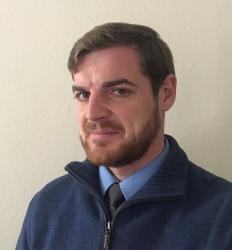Yesterday a short video, originally posted by Forbes a few months ago, popped up in my browser. Called “Finding Meaning Through Travel,” it discusses several people who have supposedly found their calling in a life of travel and exotic pursuits. I love traveling too, and having lived abroad for three years I am convinced of the value of contact with other cultures, but I have to say that the narrators’ quasi-mystical view of travel struck me as misguided.
Ben Saunders, who has led polar expeditions for the past two decades, introduces the theme and goes on to explain how people are coming to realize that the simple accumulation of things leaves them empty. Perhaps they are, and that’s a much-needed realization. But Saunders goes on to say that experience—specifically, travel—is what will fill that void. As an illustration we meet Valentine Thomas, who has left her lawyering career behind and become a “professional spear fisherwoman.”
I admit I have never been spear fishing, and I won’t dispute that it’s a lot more fun than being a lawyer, but the goal of the argument rubbed me the wrong way. So Thomas realizes that material things leave her empty, but then she just gives another material thing and says that it’s what will fill you. I’m happy that she has found something she likes better than being a lawyer, but she speaks of her life as a spear fisherwoman as though it’s her highest end, with no mention of anything beyond that. At the risk of sounding cynical, I couldn’t help wondering how long it’ll be before she realizes she’s tired of that too.
I don’t want to judge the individual people in the video, of course—I don’t know them beyond what they say here, and they all sound like interesting people who quite enjoy what they do. It’s true and healthy to enjoy what you do and try to find something you enjoy. But we should beware of the egotism that can take this attitude too far. The video makes precious little mention of others and lays excessive emphasis on “personal fulfillment,” gained exclusively through one’s career choice. There’s no mention of service or family or of anything transcendent, despite the critiques of materialism—in the end all we get is yet another material thing cast in quasi-spiritual terms. Obviously “travel” and “experience” aren’t something we can pick up and hold, so they may seem more “fulfilling,” but in the end they’re still material—created and finite. Saunders speaks glowingly of “us[ing] travel for self-fulfillment.” When we pare this down to its core, is it really any different from trying to use money for self-fulfillment?
“What is my pride?” asked Pope Francis in a January 27 press conference. “Tourism, a villa, a small dog or raising a child?” Our “pride” is what we place value in, and misplaced value will never fulfill us. Everyone has something that’s important to them, and if the right things are important to enough people then society is in good shape.
This is one of the paradoxes of the modern world. On one hand we recognize the inadequacy of what we’ve been told will make us happy, while on the other we cling to our rejection of the transcendent, a rejection that led to such inadequacy in the first place. Everyone is searching, but those who discount the answer before they even ask the question will never be satisfied.
Coincidentally, a paragraph in Benedict XVI’s just-published essay on clerical abuse (well worth reading for its own sake, by the way) addresses this point quite well:
“A society without God—a society that does not know Him and treats Him as non-existent—is a society that loses its measure. In our day, the catchphrase of God’s death was coined. When God does die in a society, it becomes free, we were assured. In reality, the death of God in a society also means the end of freedom, because what dies is the purpose that provides orientation. And because the compass disappears that points us in the right direction by teaching us to distinguish good from evil. Western society is a society in which God is absent in the public sphere and has nothing left to offer it. And that is why it is a society in which the measure of humanity is increasingly lost.”
No matter what else we have as individuals and as a society—any experiences, any travels, any career, or even any political and economic structures—they will never be enough without this “measure of humanity.” Material goods are part of human flourishing, of course, but they’re only a part—and in the end they’re not the most important one.
(Homepage photo credit: Luca Micheli, Unsplash.)

